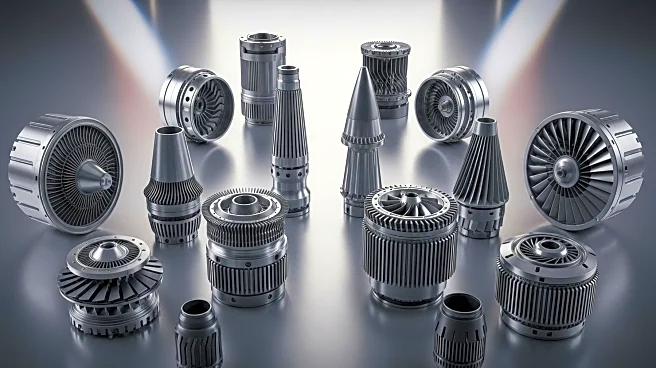What's Happening?
Automakers are increasingly sharing engine technology across different vehicle models, resulting in cars that may appear distinct but share the same powertrain. This practice is driven by the high costs and time involved in developing new engines. Companies like Volkswagen, Mercedes-Benz, and Toyota are known for such collaborations, which allow them to leverage existing technology to enhance performance and reduce production costs. These shared engines are often modified to suit the specific needs of different vehicles, offering varied driving experiences despite the commonality in their core components.
Why It's Important?
The sharing of engine technology among automakers is a strategic move that can lead to significant cost savings and efficiency improvements. By utilizing existing engines, manufacturers can focus resources on other areas of innovation, such as vehicle design and advanced features. This approach also facilitates faster production cycles and can lead to more competitive pricing for consumers. Additionally, it highlights the interconnected nature of the automotive industry, where collaboration can drive technological advancements and improve overall vehicle performance.
Beyond the Headlines
This trend of engine sharing raises questions about brand identity and consumer perception. While it offers practical benefits, it may challenge traditional notions of brand uniqueness and exclusivity. Consumers may need to adjust their expectations as more vehicles share underlying technology. Furthermore, this practice could influence regulatory considerations, as shared engines must meet diverse environmental and safety standards across different markets.









